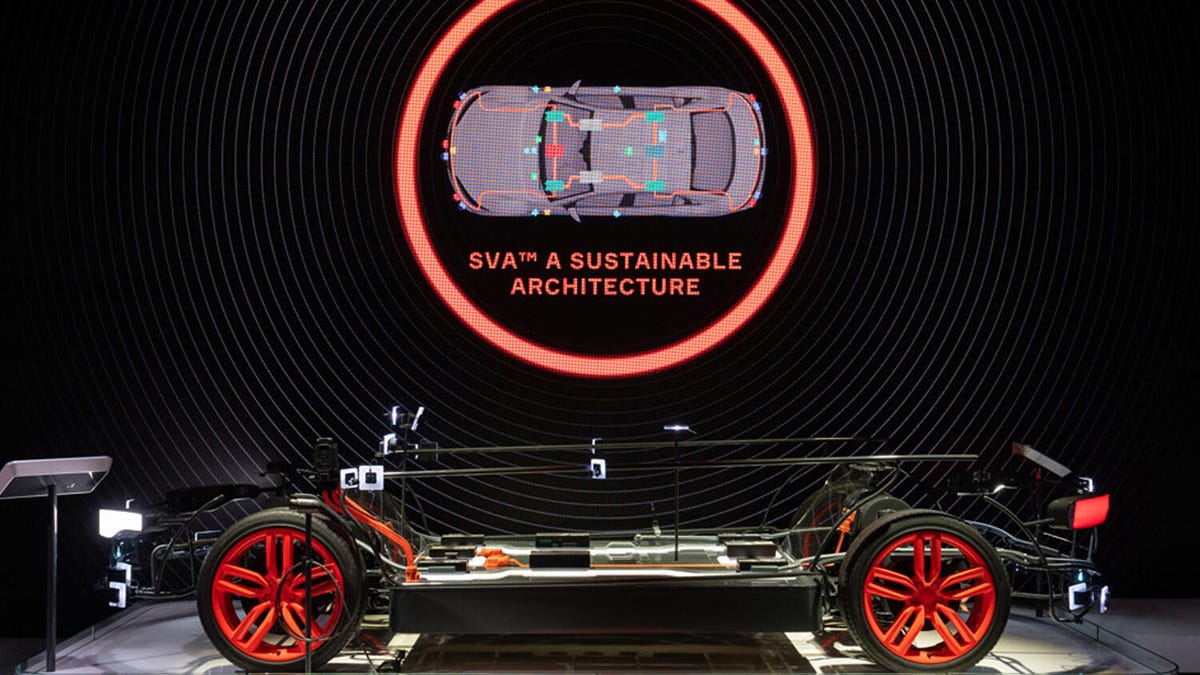Aptiv smart-car platform wants to be the brains behind connected tech
It's a modular architecture that Aptiv says will make things far less complex for automakers.

Perhaps tomorrow's cars will ride on third-party platforms.
Aptiv is a staple at CES , as its autonomous BMW models shuttle passengers around the area. However, at CES 2020, it took the sheet off of something entirely new.
On Tuesday, the technology company revealed its "Smart Vehicle Architecture," or SVA for short. The company's argument for creating such a platform is to, overall, simplify vehicle architecture. Thus, SVA is scalable from a computing standpoint and software applications can be created without taking hardware into account. That should give automakers the chance to reuse software regardless of the hardware, Aptiv said.
Bringing down the complexity factor is SVA's centralized computing zones across a few key areas. Zone controllers manage things such as sensors, power and allocate resources for areas where companies may want to consolidate features. The architecture's "Open Server Platform" can also dish out resources on the fly. If critical safety features need more brain power at the moment, SVA can do that, taking resources from non-critical areas of the vehicle in the moment.
The positive side effect of this is lower weight and more space for hardware. Aptiv said this platform reduces weight and expands packaging space for computational functions by 25%. Some other fun percentages Aptiv shared: The platform will supposedly reduce the amount of factory floor space needed by 20%, software-related warranty costs could drop by 75% and sub-assembly-related inventory management could fall by 25%.
All of the benefits come from its modular design meant to simplify manufacturing costs, plus the added bonus of fewer software tests, according to Aptiv.
Where SVA goes from here remains to be seen. Certainly, there are a lot of benefits mentioned that require prototype testing to realize them. Whether automakers are ready to buy off-the-shelf platforms remains to be seen, however.

